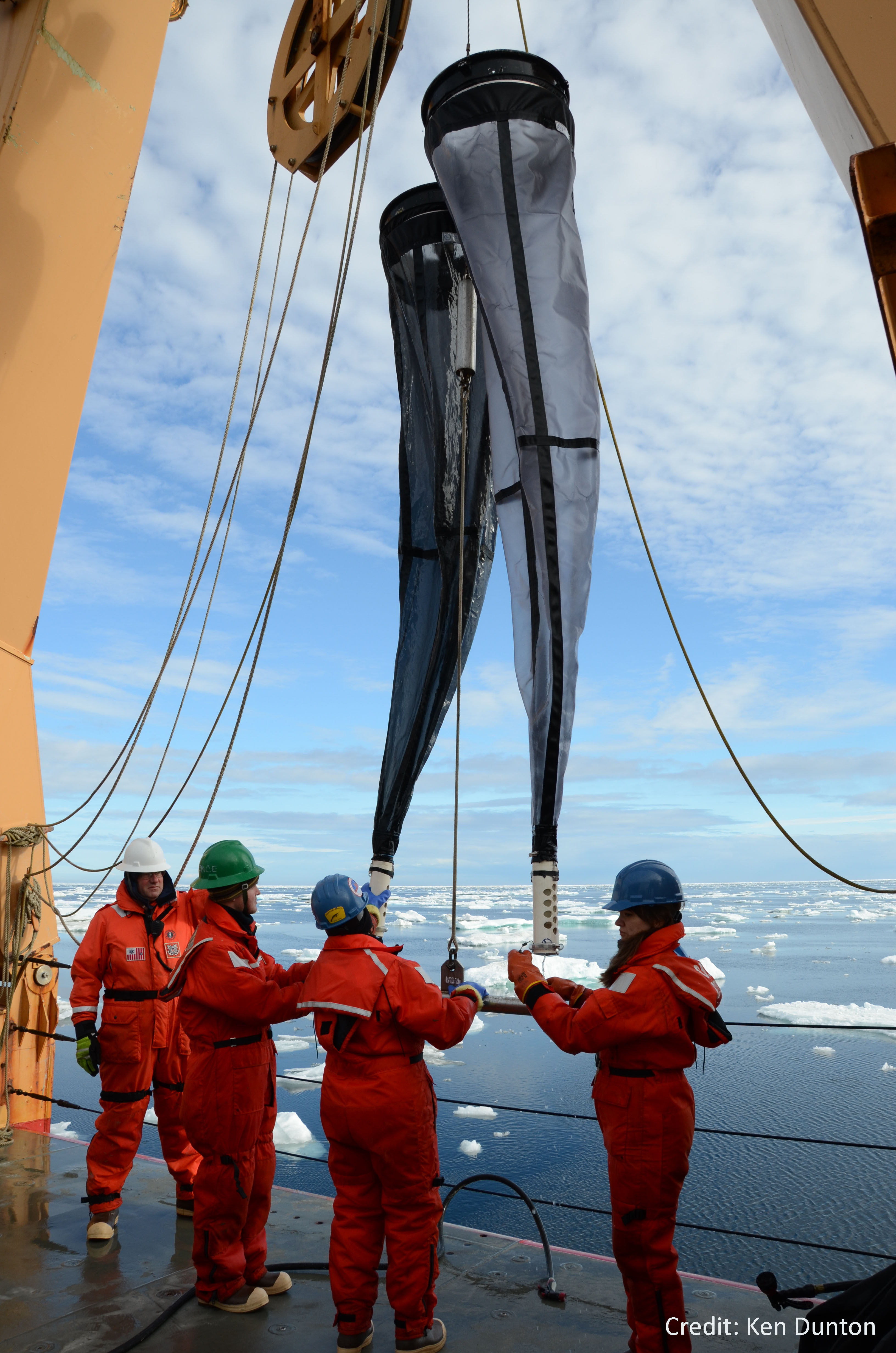 These web pages provide general information as a courtesy to visitors. The Graduate Catalog is the document of authority for the rules and regulations governing graduate study. The University reserves the right to change the requirements given in the catalog at any time.
These web pages provide general information as a courtesy to visitors. The Graduate Catalog is the document of authority for the rules and regulations governing graduate study. The University reserves the right to change the requirements given in the catalog at any time.
We encourage applications from potential students who are traditionally underrepresented in the range of disciplines represented by our faculty.
Master of Science Degree Program (MS)
Two to three years of graduate study, which will include original research and practical experience as a Teaching Assistant, are required to complete the Master's degree in Marine Science. Students must complete at least thirty semester hours of acceptable graduate work in marine science and related natural sciences. This includes six hours in a supporting natural science field outside of Marine Science, six hours of advanced graduate courses in Marine Science, and three core courses. All three core courses, which total twelve hours, must be completed for a Master's degree. (A minor, which is obligatory in every Master's degree program, consists of a minimum of six hours in supporting work outside the major program). The relative number of hours in the major or minor fields, as well as the nature of the supporting work, is determined in consultation with the graduate advisor. A thesis is required and will account for six hours of the total program. The Master's thesis shall be the product of original research.
Doctor of Philosophy Degree Program (PhD)
Four to six years of graduate study, which will include original research and practical experience as a Teaching Assistant, are required to complete the Ph.D. in Marine Science. The Doctoral program should contain no fewer than 21 hours of acceptable graduate work in marine science and no less than 6 hours in supporting areas, in addition to dissertation and supervised teaching. Of this minimal requirement of 21 hours, 12 hours of core courses must be completed. Core courses are listed in the Graduate Catalog. Supporting work from outside the major program (area of specialty) may include courses taken at another institution. To be eligible for admission to candidacy, all doctoral students must complete their core courses and pass a qualifying examination in their area of specialization. This examination will also confirm that students are competent in the other three subdisciplines. Candidacy requirements are normally completed by the end of the second year. All doctoral candidates write a dissertation based on the results of their original research and make a formal oral defense of the document to complete the degree requirements.
Area of Specialty
Each graduate student will normally select one of the subdisciplines as an area of specialization. Based on the present faculty potential, marine biology, and marine chemistry would be the Department's strongest areas of specialization for students. As an example, a doctoral student might base the majority of his/her coursework and dissertation topic on marine biology. The dissertation research would frequently integrate one or more of the other subdisciplines studied. Students opting for a major thrust in marine chemistry would follow a similar program with chemistry forming the major part of their curriculum. Similarly, master's students would specialize in one subdiscipline.
General Information for Graduate Students
Graduate study in the Department of Marine Science requires coursework at Austin and Port Aransas and a research project in Port Aransas. The exact program will be determined by the student's interest, the research field of his supervisor, and the required courses. At present, faculty are conducting research on basic and applied aspects of the following marine science subdisciplines: marine ecosystem dynamics, marine biogeochemistry, and adaptations to the marine environment. Marine science is the study of the marine environment including marine organisms, processes, and systems so each student's program will involve direct contact with the sea, its plants and animals, and/or the physical and chemical forces that drive it.
Facilities for graduate work in marine science are based in Austin and at the shore-side laboratory of the Marine Science Institute in Port Aransas, Texas. The Institute is located on the Aransas Pass ship channel among the dunes at the tip of Mustang Island, with easy access to bays, beaches, and the Gulf of Mexico. Environmental systems nearby include the hypersaline Laguna Madre, seagrass meadows, fresh and saltwater marshes, and the continental shelf. The Port Aransas facility offers research vessels, a specialized library, classrooms, laboratories, and a flowing seawater system.
Coursework taken in Austin often includes supporting work in other natural science departments. At least one semester is normally spent on the main campus. Students then reside in Port Aransas while they undertake thesis or dissertation research at the Marine Science Institute. These students also take additional courses there, including the majority of their core courses, other organized courses, seminars, and training cruises. Graduate student apartments are available at the Institute.
Admission requirements: The student's undergraduate training should include twenty-four semester hours in one of the life or physical sciences. At least twelve of these hours must be in upper-division work. Adequate preparation in mathematics, chemistry and physics is expected of all students.
Summary
If you plan to attend The University of Texas at Austin and study for a graduate degree in the Department of Marine Science, you should keep the following points in mind:
- Early application to The University and the Department is to your advantage (the Graduate School Application is available on the web here).
- You will take courses at Austin and Port Aransas.
- The Graduate Advisor will guide your application, so keep in touch.
- You should let us know your scientific interests and you are encouraged to make direct contact with individual faculty members during the application process.
Graduate Information Index
This email address is being protected from spambots. You need JavaScript enabled to view it. Request for graduate admissions information.
Graduate Student Handbook Department of Marine Science Graduate Handbook.
The Graduate School The University of Texas Graduate School.
CNS Graduate Education Policies








